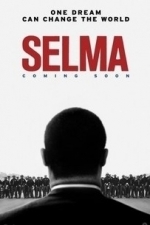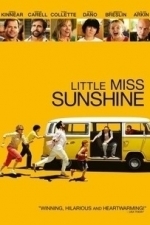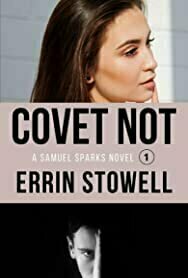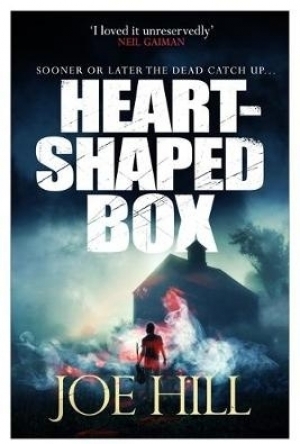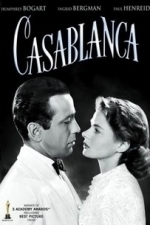Darren (1599 KP) rated Iceman (2014) in Movies
Aug 6, 2019
Ying must use the people willing to help him in May (Huang) to locate the Golden Wheel of Time, to prove that he is innocent to stop his brother’s from hunting him down.
Thoughts on Iceman
Characters – Ying was once one of the emperor’s most trusted imperial guards, he is betrayed and framed for treason before getting frozen in time. He gets defrosted in the modern time, where he must go in search for the Golden Wheel of Time to prove his true innocence and protect the world from his own brothers. Sao and San Ko are the two brothers that have also, they are causing more havoc in their hunt for Ying which has drawn more police presence. May is the young lady that takes Ying in, teaches him about the modern day unaware of the true danger that could come their direction. Cheung is running a military chase for Ying, he has learnt the power of the Golden Wheel of Time and believes that he can use it for his own good.
Performances – Donnie Yen is the main attraction to this film, we know he can handle the action which is does with ease, it is when it needs to work on the comedy side of things when his performance goes downhill. Baoqiang Wang and Kang Yu are both entertaining enough in their roles, while Simon Yam brings much needed seriousness to the film. Shengyi Huang is the strongest part of the comedy in the film.
Story – The story follows three brothers and former imperial guards in ancient China, find themselves waking up in the modern time, still at battle for the action that happened in the ancient times. This story is an ambitious idea and it does work for the idea of having the fish out of water situation created for the imperial guards. We do go through the idea of needing to figure out how survive in the new surrounding, which does work too and seeing the twists along the way with the flashbacks does fill in moments of blanks in the storyline. Parts of the storyline can come off confusing though because we do seem to have a lot going on and it does feel like if you blink you might miss something.
Action/Comedy – The action in this film is easily the highlight of it, we get to see Donnie Yen doing his fighting sequences which are always entertaining to watch. The comedy however falls flat resorting to fart jokes, May is the only one that gets proper laughs.
Settings – The film uses the settings to show how the ancient men must adapt to the modern world with the different type of locations they visit.
Special Effects – The effects in the film are good in places, but weak if others, when it comes to the roaring faces they particular look weak.
Scene of the Movie – Bridge fight.
That Moment That Annoyed Me – Fart Jokes.
Final Thoughts – This is an easy watch action sci-fi film, if you want martial arts entertainment this will give you what you need.
Overall: Enjoyable action film.
Gareth von Kallenbach (980 KP) rated Selma (2015) in Movies
Aug 6, 2019
The film does a good job of providing back story of what was happening that brought on the marches. It portrays the horrific brutality of a time when blatant hatred ripped through the soul of the nation.
During the Selma march, peaceful protestors dressed in their Sunday’s best were beaten (even killed) by local police. However, even the most hard to watch moments of violence were toned down in comparison to actual footage from the Selma march.
The visceral moments of raw emotion and terrible violence will give the audience chills
Martin Luther King, Jr. (David Oyelowo) would of course be a hard pair of shoes to fill as an actor. But somehow Oyelowo pulls it off with a passion that shows in his eyes. Even the ways in which Oyelowo delivers his speeches were powerful and moving, much in the way of the real MLK, Jr.
An intriguing part of the film is the attention given to MLK, Jr.’s wife, Coretta Scott King (Carmen Ejogo). She is a less talked about figure in history, but perhaps this will now change. She is shown to be a very strong and intelligent woman, who serves as the backbone to the King family. Her role as wife, mother, and political supporter are highlighted.
The cast selection is top notch, making the film very realistic.
Tom Wilkinson, who plays Lyndon B. Johnson, practically resurrects the late President. His physical appearance and vocals make the actor almost indistinguishable from the real LBJ. .
However, there is some controversy over the historical accuracy of certain aspects of the film. This especially is true in regards to the portrayal of LBJ.
He is portrayed as under pressure to pass legislation in favor of Black voters, but he himself comes off as a racist whose heart is not in the cause. This portrayal paints a picture of a dishonest man, wielding political power to save face. It is contradicting to the more well-known image of the LBJ who actually cared very much about civil rights and poverty.
The Voting Rights Act of 1965 is thought to be his most important piece of legislative work. It was certainly not just a mere political reaction to protestors, though they surely had a strong impact on making it happen.
No one can deny the power of MLK, Jr.’s work. It is a profound historical example of the possibility for political transformation through the will of the people.
Another point of question is whether or not it was JFK or LBJ who originally ordered the FBI surveillance of MLK, Jr. and those associated with him.
A slightly troubling aspect of the film is that it lacks showing any tinge of gender inequality, which was a pervasive part of that era. Also, it was hinted at that MLK, Jr. had infidelity issues. Personally, I had some question as to whether or not this was true, or if it was even a useful piece of information to include. Perhaps it was included to show a more human side to MLK, Jr.
All of these questions aside, “Selma” is an amazing and moving piece of work.
A finely crafted cinematic reflection of a deep and painful scar on American history, I give “Selma” 4.5 out of 5 stars.

300+ Super Sound Box
Lifestyle and Entertainment
App
The ultimate sound app! Play 300 awesome HIGH quality sound effects with big buttons! Annoy your...
Sarah (7800 KP) rated Little Miss Sunshine (2006) in Movies
Mar 24, 2021
Little Miss Sunshine is a quirky gem of an indie film from 2006 that whilst a favourite of mine and Oscar nominated, has likely flown below the radar for many mainstream viewers. Which is a huge shame as this is such a fun, heartwarming and enjoyable film
Directed by husband and wife team Jonathan Dayton and Valerie Faris, Little Miss Sunshine follows the life of the dysfunctional Hoover family from New Mexico. The Hoovers are a family of unfortunates, misfits and losers, and probably one of the most realistic family depictions you’ll ever seen on screen outside of reality TV. There’s Sheryl (Toni Collette), the harassed mum who keeps her family fed on fast food. Dad Richard (Greg Kinnear) who’s trying to peddle a failing business that focuses on teaching others the secrets to success. Grandpa Edwin (Alan Arkin), an ageing hippie with a drug habit that has been kicked out of his retirement home. Sheryl’s brother Frank (Steve Carell), a gay man currently recovering from a suicide attempt after his partner left him. Son Duane (Paul Dano) who’s goal to get into flight school has led him to take a vow of silence. And finally there’s young daughter Olive (Abigail Breslin), who’s obsession with beauty pageants leads the family to take a cross country trip in an ageing VW van to help her compete in the Little Miss Sunshine pageant. Along the way, the family encounter a variety of mishaps and events that can potentially change their lives.
The Hoover family for the most part are ridiculously lovable and this is entirely down to their flaws that they are so likeable. Aside from Dad Richard who has a number of questionable ethics and morals that demean others, the family and their unique quirky personalities are the main reason why this film is so enjoyable. And the fact that the entire family are all brought together by young Olive across the span of the film makes this incredibly heartwarming. Olive is an underdog and being realistic, not the type of girl who you’d see in your typical American beauty pageant, but you still find yourself rooting for her all the same.
The cast are fantastic and while you can always rely on Toni Collette, Alan Arkin and Greg Kinnear, it’s Steve Carell and Abigail Breslin that shine brightest. Until this, I didn’t think Steve Carell could do serious and especially not a role that like. But he excels, bringing a sad, intelligent air to Frank and personally I think this is his best role to date. And then there’s Abigail Breslin, a 9 year old who steals the show and pulls the entire cast and film together. Together with a clever, well written script, the cast pull together a heartwarming and surprisingly funny film where emotions and family are key to an eventful road trip.
What I enjoyed the most about Little Miss Sunshine is that while the journey the family take is obviously most important, we do at least get the joy of seeing Olive enter the beauty pageant and this is such a fitting end to the story. There may be some slightly unbelievable or predictable events that occur across the journey (the police traffic stop being one), but ultimately you come out of this feeling incredibly satisfied and rather warm and fuzzy inside. One of the most enjoyable family road trip movies I’ve ever seen.

iSpeedCam Canada (SpeedCam Detector with GPS Tracking)
Navigation and Utilities
App
Welcome to iSpeedCam - the most advanced Traffic Enforcement Camera warning system for the iPhone...

i SpeedCam Europe (Speed Camera Detector with GPS Tracking)
Navigation and Utilities
App
Welcome to iSpeedCam - the most advanced Traffic Enforcement Camera warning system for the iPhone...

i SpeedCam Spain (Speed Camera Detector with GPS Tracking)
Navigation and Utilities
App
Welcome to iSpeedCam - the most advanced Traffic Enforcement Camera warning system for the iPhone...
If this sounds like a synopsis for a John Grisham novel, you wouldn't be far off because Stowell has the potential to be the next one. This is only the first novel I've read by Stowell, but the one thing I noticed mostly in this story was the amount of inconsistencies and amateur writing mistakes; with better editing and consistency, his books could very well hit mainstream.
Also, Covet Not had so many chapters, so much so that scenes were chopped in half and made into entirely new chapters. The book ended up having 48 chapters within 158 pages. This amount could have easily been shortened and helped with the flow of the story if Stowell had just continued onwards with scenes rather then cutting them short or just skipping parts completely.
The novel starts with a man called Skinny who is enjoying his growing infamy on the dark web (he records himself murdering women then uploads it for his audience to enjoy). Here is how Stowell describes Skinny's thought process:
" Skinny took a black ski mask from the duffel bag and put it on before carrying the bag into the camera's frame and placing it near the woman. He began unpacking other items from the bag. It was slow work, deliberately slow for the camera. Skinny intended to have a before and after view for each tool. It was important to show the proper use of tools. The viewers always appreciated that. "
When we switch over to Sparks, we find him after a long day of work, speaking with a journalist named Gina, his fiancee, who is telling him one of her co-workers stole her story, but no one has heard from her in two days. Yet, they both agree that she's probably holed up with one of the producers, and instead, get into a small argument about Sparks never supporting Gina - - - a constant habit of arguing is almost every interaction between the two throughout the entire novel.
Soon after, Sparks introduces us to his uncle Jimmy, who is being housed at a retirement home: " The old man was seated in a wheelchair; his left leg had been amputated just below the knee a few years before, the result of allowing an ingrown toenail to fester to gangrene. Jimmy's barrel chest and solid upper body contrasted with his wasting legs. "
As Sparks continues to visit his uncle in the retirement home, he keeps running into a cute nurse named Darlene, who quickly sets her sights on him. She goes so far out of her way to get Sparks and Gina to separate that she sends him nude photos of herself from a burner phone. Fortunately, Sparks has bigger fish to fry when he hears over his car radio that Gina's co-worker was now being treated as a missing person case, causing Sparks to quickly jump to the conclusion that Gina possibly was responsible for it.
However, Stowell throws in an expected curveball by making our villain, Skinny, work at the retirement home. When he comes in to take care of a patient while Sparks is present, it's too easy to guess that this patient was going to end up dead soon. Sparks, expectedly, has a bad feeling about this male nurse, but dismisses it and believes that the patient died by natural causes. Life goes on.
Stowell's novel, with a great plot, was just too focused on ending the story, that after page 50, it seemed as if Stowell didn't care what happened to these characters, just as long as he finished the book. At one point, readers are told that Sparks doesn't drink alcohol, but it's never explained why he doesn't which would have given a bite of character development; another scene, Sparks finds a phone, but doesn't want to give it to police, instead he states that he has a 'friend' in the police department who can go through it as a favor, but this 'friend' is completely forgotten, as if Sparks never mentioned him, and the former is left dumbfounded as to how to get into the phone.
There's a story here and characters that could be more well-rounded, but I honestly found myself not caring the least bit about any of the characters' well-being, especially Sparks - - - someone who comes off as inept, someone who has to be told what to do in order for anything to get done - - - he's like a lost child running blindly throughout the book. The story needs to be longer with more emphasis given to mundane scenes that will allow readers to chew on a piece of Sparks' daily life because, by the end of the book, we needed a full picture of every major character, not a Jackson Pollock.
Hadley (567 KP) rated Heart-Shaped Box in Books
Jun 18, 2019
'Heart-Shaped Box' does a successful job of not only painting a picture of ghosts, but also of the spirits that reside in animals (like a witch's familiar), but the likable characters in this book are few and far between. Coyne treats women as objects(he literally only calls them by the State name they are from,such as Florida), and also ended his own marriage by refusing to throw away a snuff film he had obtained from a police. When the story begins, Coyne is shacked up with a young woman (nearly 30 years younger) he calls Georgia; she is described as a stereo-typical goth: black hair, black nail polish, pale white skin. This description of the women Coyne has been with seem to be about the same, but maybe a different hair color, but any other woman that is ever mentioned in the book is either very old or very overweight.
Coyne, a collector of all things dark, buys a dead man's suit that is supposedly haunted by a woman's deceased stepfather. Quite quickly things begin to happen after the suit arrives, including a decaying smell, first noticed by Coyne's 'girlfriend,' Georgia: " I know. I was wondering if there was something in one of the pockets. Something going bad. Old food." She makes Coyne take a look at the suit to see if there is something dead inside of it, but he never finds the source of the smell. Instead, he finds a picture of a young girl in one of the pockets, a girl that is very familiar to Coyne, a girl he once called 'Florida.'
Coyne doesn't seem to take any of the signs seriously that he may be haunted by a ghost that wants to harm him and anyone who comes in contact with him. Until Coyne finds himself sitting inside his restored vintage Mustang in a closed-off barn: " He snorted softly to himself. It wasn't selling souls that got you into trouble, it was buying them. Next time he would have to make sure there was a return policy. He laughed, opened his eyes a little. The dead man, Craddock, sat in the passenger seat next to him. He smiled at Jude, to show stained teeth and a black tongue. He smelled of death, also of car exhaust. His eyes were hidden behind those odd, continuously moving black brushstrokes."
Craddock turns out to be, without giving too much away, a man who was a spiritualist in his living life. He wants nothing but pain and misery for Coyne, who happened to kick his young step daughter to the curb a year before. The parts of the story that deal with both Coyne and Craddock interacting are the most interesting ones. Without these interactions, the story would have fallen very short.
That said, 'Heart-Shaped Box' had quite a few faults to it. Readers may notice that some pages contradict themselves on the very next page, Hill's overuse of Georgia's bangs (hair) as a description for all of her facial expressions, also Hill's habit of being repetitive with words that he uses to describe most things, the unbelievable part where Coyne- - - a collector of occult items- - - claims he has never used a Ouija board before (and lacks the knowledge of how to use one), and last but not least, chapter 34, a chapter that was not needed and completely stopped the story in it's tracks.
And speaking of things that were not needed in the story- - - a part where Georgia has a gun in her mouth, ready to commit suicide, Coyne can only think to remove the gun and replace it with his penis. I understand that Hill may have been going for unlikable characters from the beginning, to really have Coyne play the part of a jaded man, but sometimes Hill seems to go too far. Every book has to have a character to root for, otherwise your readers will put the book down, luckily, this book has Bammy; she is Georgia's grandmother, unfortunately, in less than 15 pages, she never appears in the story again. "You strung out? Christ. You smell like a dog." Bammy says to Georgia after she and Coyne show up at her home.
Is this book a good ghost story, yes, is this story a great horror story, no. Hill lacks on likable characters enough that I don't think a lot of people could enjoy this book. If I were to recommend it, I wouldn't recommend it to teenagers because of a much talked about snuff film, drugs and suicide. I don't think I would read this again.
BankofMarquis (1832 KP) rated Casablanca (1942) in Movies
Feb 13, 2019
If there was only 1 movie that could be shown to show off "classic", old time Hollywood of the 1930's, '40's and early '50s, look no further than Michael Curtiz' 1942 classic CASABLANCA. While well known for the performances of the leads, the multiple quoted lines, Sam singing AS TIME GOES BY and the iconic ending, this film also is a time capsule to a Hollywood of another year - one that just doesn't exist today.
Starring the great Humphrey Bogart in an Academy Award nominated performance (inexplicably, losing to Paul Lukas for WATCH ON THE RHINE), CASABLANCA tells the tale of Rick Blaine the owner/operator of "Rick's Place" a bar in Casablanca, Morocco in the early days of WWII. He is world-weary, beaten and cynical and is well known as someone who can get things done (for a price) but also one who will not stick his neck out for anyone. When a couple on the run from the Nazi's (Paul Henreid, Ingrid Bergman) enter's Rick's Place, Blaine (for reasons that are revealed in the film) decides to help.
"Here's looking at your kid."
Bogart is marvelous as Blaine, you can see every inch of his world-weariness on his well-worn, craggy face. He is perfectly cast as Rick and his mannerisms and vocal patterns depict a heaviness within. Bogart is often criticized for his lack of acting talent - nothing could be further from the truth here. He is perfectly paired with Bergman as Ilse - a former love of Rick's, who is now the wife of Freedom Fighter Victor Laszlo (Henreid). There is real chemistry between Bogart and Bergman in this film and you can tell that they are former lovers that still has a flame burning inside.
"We'll always have Paris."
But it's not just the leads who are terrific in this, it's the "who's who" of character actors that make up the Supporting Cast that really brings this film to life. From Peter Lorre to Sydney Greenstreet to Conrad Veidt to S.Z. Sakall to Dooley Wilson as Sam (who plays and sings AS TIME GOES BY), all bring interesting faces and characters to Casablanca (and Rick's Place) but the standout is Claude Rains (nominated for Best Supporting Actor - losing, inexplicably, to Charles Coburn in THE MORE THE MERRIER) as Louis, the corrupt Police Captain of Casablanca who becomes an uneasy ally of Rick's. Did I say that Bogart and Bergman had good chemistry? Check out the chemistry between Bogart and Rains, there was talk of a sequel to Casablance featuring these two - I, for one, would love to have seen that buddy flick.
Director Michael Curtiz won an Oscar for his work - and it is richly deserved. Nary a shot is wasted on this film, each picture a rich black and white portrait. It is interesting to note that this entire film was shot in California (not Casablanca), mostly on the Warner Brothers lot, but Curtiz was able to give the look and (more importantly) the feel of the place through the sets, costumes, lighting and atmosphere.
But it's the words that these characters got to say that really brought home the feel and atmosphere of the time, so credit needs to go to Screenwriters Julius and Phillip Epstein as well as Howard Koch who won Oscars for their work here. This is a masterful, classic work. One that stands up to this day. If you haven't seen this film in awhile, do yourself a favor and check it out - you'll be glad you did.
"Louie, I think this is the beginning of a beautiful friendship."
Letter Grade: A+
A rare 10 (out of 10) stars and you can take that to the Bank(ofMarquis)

